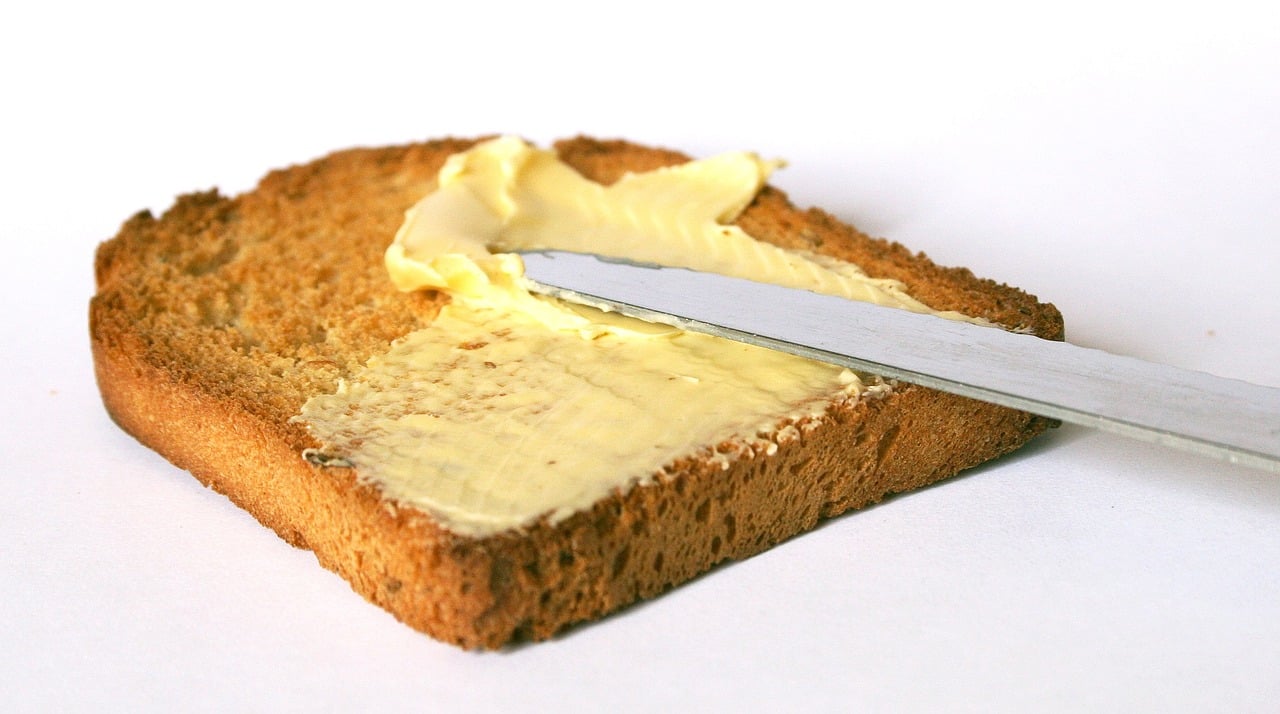EXPLAINED: The rules Swiss cross-border shoppers need to know

Whether you live in the Deutschschweiz, Romandy or Ticino, chances are you probably do some of your shopping across the border. Here are the rules you should be aware of.
For years, many people living near one of Switzerland’s borders have been shopping in border regions of neighbouring countries to save money.
In fact, there is perhaps no better time to take your shopping across the border than today thanks to the strong Swiss franc.
But before you toss your empty shopping bags into the backseat, there are a few rules (and penalties) you should be aware of lest you get carried away.
Swiss customs rules
When bringing goods into Switzerland, whether from Germany or another border country, you will need to pay VAT if the amount exceeds 300 francs.
While border checks are rare (but do happen), those who make a habit of exceeding this amount – even if it is for goods for personal use – run the risk of falling foul of the authorities.
While in principle, you can import goods into Switzerland with an equivalent value of up to 300 Swiss francs, some products are considered “sensitive goods” and come with their own regulations.
Sensitive goods include tobacco, alcohol, meat, butter, oils, psychoactive medications, and pets.
All other goods can be imported duty free.
READ MORE: The benefits (and challenges) of the strong Swiss franc
Tobacco
Anyone who is 17-years-old and above can import 250 cigarettes or cigars into Switzerland duty-free. This corresponds to a little more than a carton of cigarettes and limits the import options to personal use.
You can also import 250 grams of loose tobacco duty-free though you will have to dig deep into your pocket if you plan to purchase more than that.
With larger quantities, Swiss customs authorities charge 25 cents per additional cigarette and an additional 10 centimes for each additional gram of loose tobacco.
Import of alcoholic beverages
Most countries have alcohol import restrictions, and this also applies to Switzerland.
For instance, this customs clearance regulates the discounted shopping experience at the border.
If you want to avoid a hefty fine, you will need to follow these guidelines:
You’re allowed to buy 5 litres of alcoholic beverages of up to 18 percent volume as long as you’re 17 or over.
If you exceed this amount you will need to pay two Swiss francs per additional litre.
You can also purchase 1 litre of an alcoholic beverage by volume of more than 18 percent volume.
If you exceed this amount you will need to pay 15 Swiss francs per additional litre.

Cross-border shoppers need to be keep an eye on Swiss customs. Image by Erich Westendarp from Pixabay.
Meat
As in many countries, meat is also considered a sensitive product when imported into Switzerland.
The reason for this is the possibility of germ contamination as well as the potential transmission of pathogens.
So, if you do shop abroad, remember that you may only buy one duty-free kilogram of fresh or prepared (canned) meat.
However, there are some exceptions.
These include game meat (such as pheasant, wild boar, deer, or similar), dog and cat food (that is marked as such), meat from wild animals kept in enclosures or fish, crabs and marine molluscs — you are allowed to bring in up to 10 kg.
If you purchase more than the allowed amount, you will be required to pay 17 Swiss francs per kilogram if your overall purchased amount is up to 10 kg, and 23 Swiss francs per kilogram if the overall purchase amount in meat products exceeds 10 kg.
READ MORE: Why cross-border shopping has become less popular in Switzerland
Butter and oils
Switzerland also has regulations in place when it comes to importing butter and oils.
For butter or cream, there is a 1 kg limit, and you will be expected to pay 16 Swiss francs per additional kilogram if you buy more than the permitted amount.
For oils, fats, or margarine for human consumption there is a five kg limit in place. If you buy more than 5kg, you will need to pay an additional 2 Swiss francs per kilogram.
Medicine
Understandably, the import and export of medication at the Swiss border is strictly monitored due to the Black market circulating on the German-French-Swiss borders.
Those travelling abroad to do their shopping can, however, have on hand their own medication that is either psychoactive or contains narcotics (such as antidepressants).
Ideally, you will carry with you a letter from your doctor written in English that states that you need the medication for health reasons.
Generally, a monthly pack is considered a reasonable amount to carry if you do travel abroad.
READ ALSO: If I work in Switzerland is it better to live in France?
How do I clear goods through customs?
By far the easiest way to get through customs quickly is to download the QuickZoll app (no registration required), which is provided by the Federal Office for Customs and Border Security for the importation of personal goods.
The app allows you to declare your goods before you travel across the border into Switzerland and to pay any customs fees directly. The goods cleared for import using QuickZoll can then be brought into Switzerland at any border crossing.
Some goods, such as vehicles, weapons and live animals, cannot be declared via the QuickZoll app as they are subject to restrictions, authorisations or bans.

There are rules on importing products like butter and oils to Switzerland. Image by lou_zeni from Pixabay
If there are customs officials stationed at the Swiss border crossing, you may (or need to) also spontaneously declare your goods with them.
If you are travelling by rail, you can make a verbal declaration to a customs official on the train. If there are no customs officials on the train, you can declare your goods at any customs office during business hours within seven days of your arrival in Switzerland.
Alternatively, if you enter the country at an unmanned border crossing, you can also fill out a self-declaration form. These forms are available in the declaration box. However, note that this option is not available for declaring goods that are to be sold or traded.
Penalties
When crossing the Swiss border, the so-called tax law principle of self-declaration is applicable. It stipulates that all people are obliged to spontaneously declare all goods that they are carrying with them when crossing the border into Switzerland.
If this is not done, or if the declaration is incorrect, this is deemed to be a punishable violation and may - depending on the case - involve several laws.
In Switzerland, violations can be pursued not only when detected at the border, but also later on. Moreover, anyone who commits a violation can be held liable by the Federal Office for Customs and Border Security (Anti-Fraud) several years later.
In most cases, the fines amount to a great deal more than the duties that would normally be due (which you will still have to pay). In cases of gross negligence, the violation can be prosecuted with a so-called fine (daily rate).
Refund of foreign VAT
If you bring goods purchased abroad to Switzerland, you may be able to have the foreign VAT refunded.
Foreign VAT refunds are made by the seller abroad (just ask the shop assistant) or by a VAT refund company. Therefore, the Federal Office for Customs and Border Security is not authorised to make this refund and is unable to provide any information on how to proceed.
Sellers abroad will generally provide you with a refund form on which the foreign customs authority can confirm the exportation of your purchase to Switzerland.
Swiss VAT must be paid on goods of a total value exceeding 300 Swiss francs on import even if the foreign VAT is not refunded.
VAT in Switzerland is currently 7.7 percent, but will increase to 8.1 percent from January 1st, 2024.
Comments
See Also
For years, many people living near one of Switzerland’s borders have been shopping in border regions of neighbouring countries to save money.
In fact, there is perhaps no better time to take your shopping across the border than today thanks to the strong Swiss franc.
But before you toss your empty shopping bags into the backseat, there are a few rules (and penalties) you should be aware of lest you get carried away.
Swiss customs rules
When bringing goods into Switzerland, whether from Germany or another border country, you will need to pay VAT if the amount exceeds 300 francs.
While border checks are rare (but do happen), those who make a habit of exceeding this amount – even if it is for goods for personal use – run the risk of falling foul of the authorities.
While in principle, you can import goods into Switzerland with an equivalent value of up to 300 Swiss francs, some products are considered “sensitive goods” and come with their own regulations.
Sensitive goods include tobacco, alcohol, meat, butter, oils, psychoactive medications, and pets.
All other goods can be imported duty free.
READ MORE: The benefits (and challenges) of the strong Swiss franc
Tobacco
Anyone who is 17-years-old and above can import 250 cigarettes or cigars into Switzerland duty-free. This corresponds to a little more than a carton of cigarettes and limits the import options to personal use.
You can also import 250 grams of loose tobacco duty-free though you will have to dig deep into your pocket if you plan to purchase more than that.
With larger quantities, Swiss customs authorities charge 25 cents per additional cigarette and an additional 10 centimes for each additional gram of loose tobacco.
Import of alcoholic beverages
Most countries have alcohol import restrictions, and this also applies to Switzerland.
For instance, this customs clearance regulates the discounted shopping experience at the border.
If you want to avoid a hefty fine, you will need to follow these guidelines:
You’re allowed to buy 5 litres of alcoholic beverages of up to 18 percent volume as long as you’re 17 or over.
If you exceed this amount you will need to pay two Swiss francs per additional litre.
You can also purchase 1 litre of an alcoholic beverage by volume of more than 18 percent volume.
If you exceed this amount you will need to pay 15 Swiss francs per additional litre.

Meat
As in many countries, meat is also considered a sensitive product when imported into Switzerland.
The reason for this is the possibility of germ contamination as well as the potential transmission of pathogens.
So, if you do shop abroad, remember that you may only buy one duty-free kilogram of fresh or prepared (canned) meat.
However, there are some exceptions.
These include game meat (such as pheasant, wild boar, deer, or similar), dog and cat food (that is marked as such), meat from wild animals kept in enclosures or fish, crabs and marine molluscs — you are allowed to bring in up to 10 kg.
If you purchase more than the allowed amount, you will be required to pay 17 Swiss francs per kilogram if your overall purchased amount is up to 10 kg, and 23 Swiss francs per kilogram if the overall purchase amount in meat products exceeds 10 kg.
READ MORE: Why cross-border shopping has become less popular in Switzerland
Butter and oils
Switzerland also has regulations in place when it comes to importing butter and oils.
For butter or cream, there is a 1 kg limit, and you will be expected to pay 16 Swiss francs per additional kilogram if you buy more than the permitted amount.
For oils, fats, or margarine for human consumption there is a five kg limit in place. If you buy more than 5kg, you will need to pay an additional 2 Swiss francs per kilogram.
Medicine
Understandably, the import and export of medication at the Swiss border is strictly monitored due to the Black market circulating on the German-French-Swiss borders.
Those travelling abroad to do their shopping can, however, have on hand their own medication that is either psychoactive or contains narcotics (such as antidepressants).
Ideally, you will carry with you a letter from your doctor written in English that states that you need the medication for health reasons.
Generally, a monthly pack is considered a reasonable amount to carry if you do travel abroad.
READ ALSO: If I work in Switzerland is it better to live in France?
How do I clear goods through customs?
By far the easiest way to get through customs quickly is to download the QuickZoll app (no registration required), which is provided by the Federal Office for Customs and Border Security for the importation of personal goods.
The app allows you to declare your goods before you travel across the border into Switzerland and to pay any customs fees directly. The goods cleared for import using QuickZoll can then be brought into Switzerland at any border crossing.
Some goods, such as vehicles, weapons and live animals, cannot be declared via the QuickZoll app as they are subject to restrictions, authorisations or bans.

If there are customs officials stationed at the Swiss border crossing, you may (or need to) also spontaneously declare your goods with them.
If you are travelling by rail, you can make a verbal declaration to a customs official on the train. If there are no customs officials on the train, you can declare your goods at any customs office during business hours within seven days of your arrival in Switzerland.
Alternatively, if you enter the country at an unmanned border crossing, you can also fill out a self-declaration form. These forms are available in the declaration box. However, note that this option is not available for declaring goods that are to be sold or traded.
Penalties
When crossing the Swiss border, the so-called tax law principle of self-declaration is applicable. It stipulates that all people are obliged to spontaneously declare all goods that they are carrying with them when crossing the border into Switzerland.
If this is not done, or if the declaration is incorrect, this is deemed to be a punishable violation and may - depending on the case - involve several laws.
In Switzerland, violations can be pursued not only when detected at the border, but also later on. Moreover, anyone who commits a violation can be held liable by the Federal Office for Customs and Border Security (Anti-Fraud) several years later.
In most cases, the fines amount to a great deal more than the duties that would normally be due (which you will still have to pay). In cases of gross negligence, the violation can be prosecuted with a so-called fine (daily rate).
Refund of foreign VAT
If you bring goods purchased abroad to Switzerland, you may be able to have the foreign VAT refunded.
Foreign VAT refunds are made by the seller abroad (just ask the shop assistant) or by a VAT refund company. Therefore, the Federal Office for Customs and Border Security is not authorised to make this refund and is unable to provide any information on how to proceed.
Sellers abroad will generally provide you with a refund form on which the foreign customs authority can confirm the exportation of your purchase to Switzerland.
Swiss VAT must be paid on goods of a total value exceeding 300 Swiss francs on import even if the foreign VAT is not refunded.
VAT in Switzerland is currently 7.7 percent, but will increase to 8.1 percent from January 1st, 2024.
Join the conversation in our comments section below. Share your own views and experience and if you have a question or suggestion for our journalists then email us at [email protected].
Please keep comments civil, constructive and on topic – and make sure to read our terms of use before getting involved.
Please log in here to leave a comment.